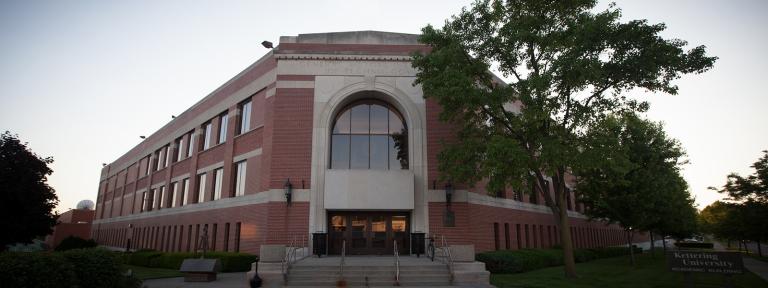
“It has increased my appreciation for what the Chinese have done for themselves, but also increased my understanding of the almost inexorable shift of power and prosperity to Southeast Asia and what that could mean for the world in the future.”
Kettering University students are not the only ones who benefit from experiential learning.
Dr. Ezekiel Gebissa, professor in the Department of Liberal Studies, spent the spring term of 2011 in China as an Oswald International Fellow.
“I was familiar with the broad sweep of China history and read new materials about the country before I left,” Gebissa said. “But there’s nothing like seeing firsthand. Being there and experiencing it is different from reading books or listening to media reports. My stay was a remarkable experience for me.”
Gebissa wanted to research and learn more about China because the country is such a rapidly growing world power. He felt it was important to know more about the country’s culture, economy and history to impart that knowledge to his students.
“That’s what being there has done for me – now I can speak with concrete examples in the classroom,” Gebissa said. “It has increased my appreciation for what the Chinese have done for themselves, but also increased my understanding of the almost inexorable shift of power and prosperity to Southeast Asia and what that could mean for the world in the future.”
In addition to lecturing on sustainable development and leadership at the Dalian University of Technology in Liaoning province in northeastern China, Gebissa visited China’s eastern seaboard and looked at the country’s rapidly growing economy and how this rapid change and growth has impacted the population.
“I was able to see the result of their huge investments in infrastructure, speak to people and learn how people are actually experiencing this growth,” Gebissa said. “I really wanted to learn what it was like to live under Chairman Mao Zedong during the Great Leap Forward and the Cultural Revolution and what it really means today and compare life experiences.
“I did talk to some older people who have seen the benefits of the change introduced in China by Deng Xiaoping and his successors,” he continued. “Being there is enlightening. I was able to see the commitment of the current leadership to planning and execution of economic development programs, and what the Chinese think about their leadership. I would recommend that experience to anyone, including our students.”
Visiting China also aided Gebissa in other areas of his expertise, particularly his knowledge of Africa.
“One of the courses I teach at Kettering is contemporary Africa. Currently, Africa is experiencing a resurgence in economic development and it’s all led by China’s unprecedented investments, so I also have an interest in China in Africa,” he said. “What the Chinese are doing in Africa – the structure of their investments in infrastructure development, the nature of their trade, the nature of their involvement in technology transfer, whether the Chinese adventure in Africa is in the long run good for the continent – those are things I’m interested in. After China, I went to Ethiopia to visit one of about six economic zones the Chinese have created in Africa.”
Gebissa believes that it is of vital importance for all students to gain a better understanding of China. He believes that understanding China’s rise as a world power can allow leaders to better manage some of the anxieties that have occurred in the past when the world’s balance of power has shifted.
“I think China is a competitor for the United States. When there is a shift in power/prosperity, there is always anxiety on the part of the area from where the power is moving away, like the British for example, when power was shifting to North America in the second half of the twentieth century,” Gebissa said. “They felt like they were losing everything, but they’re doing very well today.
“The shift is already underway. Our responsibility is how to manage it. To manage it, the next leaders of this country need to understand China, understand how the Chinese think and reason, so I have great interest in China and its rise. China is very relevant in the classroom.”
Gebissa has done a lot of research on sustainable development, and often talks to his students about the importance of innovation in places like China, Africa and elsewhere.
“I like to talk to students about looking at problems as opportunities that can be addressed through innovation,” he said. “They can do well for themselves by doing good.”
Gebissa was a Fulbright Scholar in 2003. In November 2010, he was added to the prestigious Fulbright Specialists Roster. This designation places him on a list of experts in different fields. Universities all over the world can request specialists from those topic areas to visit and share that expertise. Gebissa will stay on the specialists list for five years. Although he doesn’t have definitive plans to visit other universities yet, he’s excited for the opportunity to continue to gain more firsthand knowledge by immersing himself in other cultures.
“The experience has enormously helped me to have a perspective about the rise of China,” Gebissa said. “It has given me a repertoire of examples that I can draw on for a number of years. I am forever grateful to Kettering University and the Oswald family for that opportunity. Being able to use firsthand narratives is extremely useful for teachers in elucidating difficult concepts to students.”